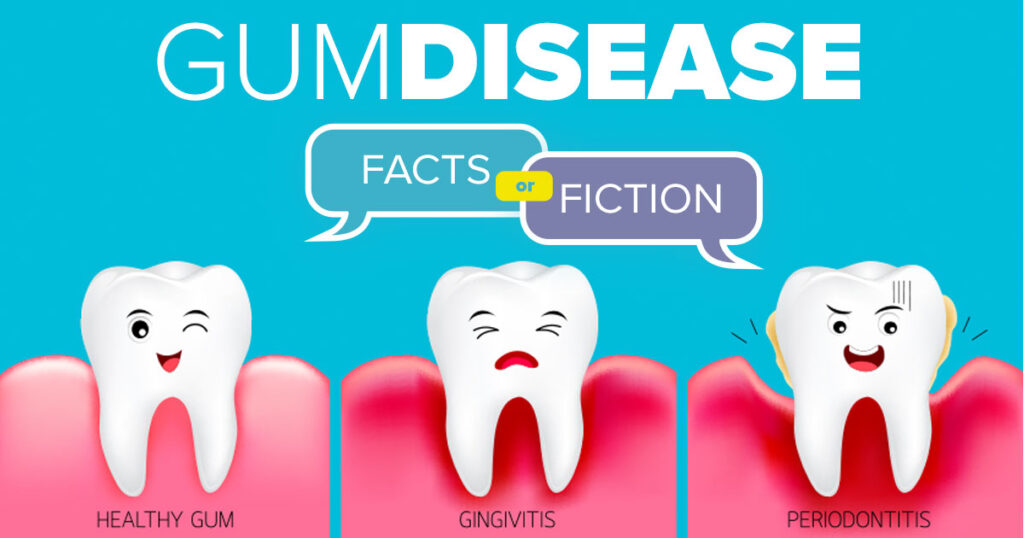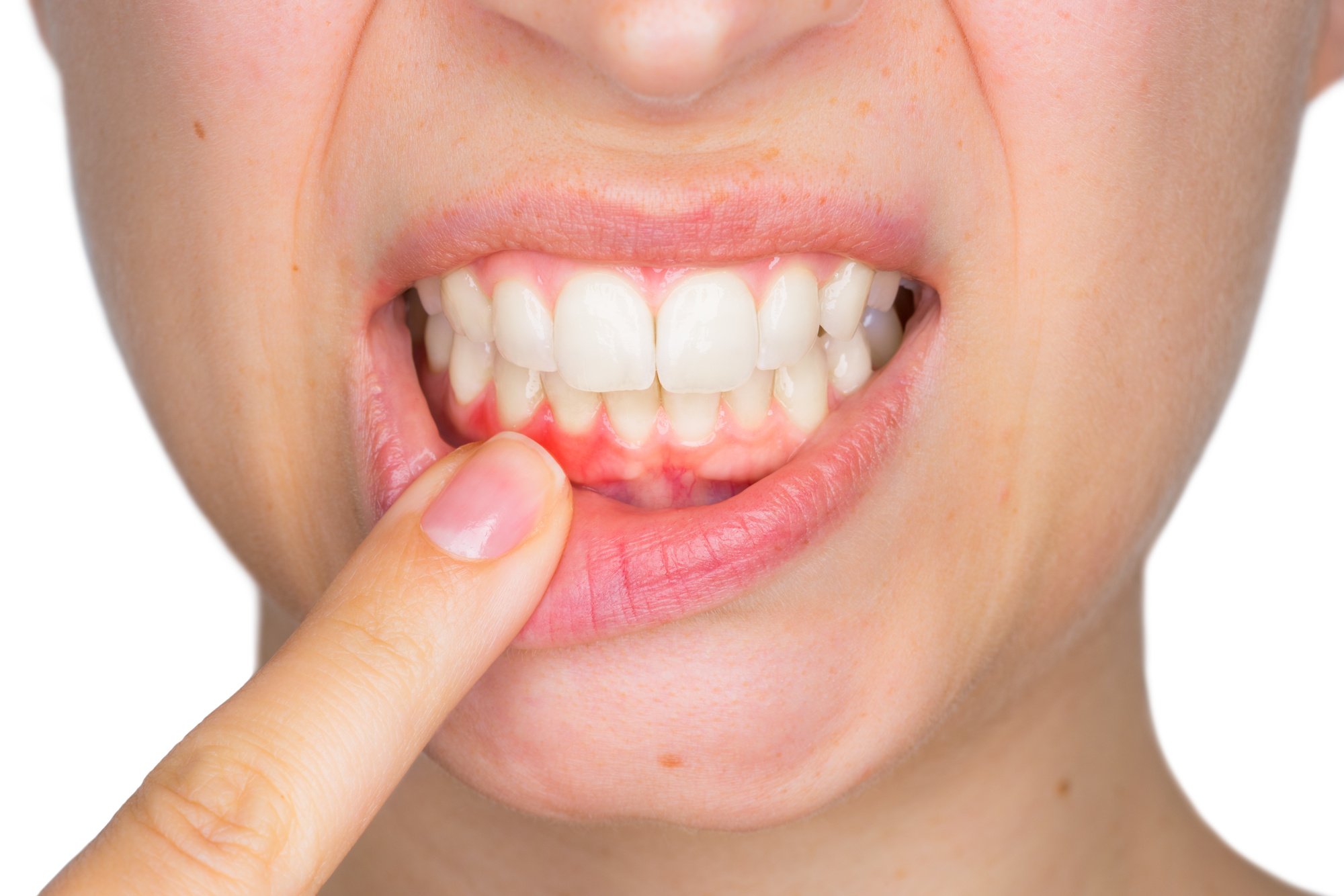It’s a National Gum Care Month!
In honor of National Gum Care Month, Ash Dental Irvine dentist Dr. A. Sami DDS wants to encourage the health of all their patients with some educational information about oral care and gum disease.
Gum Disease – or periodontal disease – is a long-term infection in your gums that if left undiagnosed and untreated results in loss of gum tissue, the underlying bone, and eventually loss of your teeth in the infected areas. Over 80% of Americans suffer from periodontal disease-inflicted damage to their gums, teeth, and surrounding bone by the age of 45.
While proper dental hygiene is crucial all year round, this monthly observance provides the perfect opportunity to learn the importance of gum health and what you can do both at home and the office to prevent gum disease.
What are Gums?
Gums are the tissues (usually the pink stuff) that surround and protect your teeth. Taking care of your gums is not only important to protect your beautiful smile, but also because it can influence your general health. Did you know that gums can be different colors and may even have various pigmentation on them? Your gums are as unique as your smile!
The bad news is that if you experience these issues, but hesitate to visit the dentist, you put yourself at risk of worsening the issue. If you do not treat gingivitis, it could eventually develop into a more severe issue known as periodontitis.
What is Gum Disease?
Basically, if you deal with frequent soreness, sharp pains, or bleeding from your gums – you may be at risk of having Gum Disease. More commonly known as gingivitis, gum disease typically starts as a bacterial infection of your gums.
Gum Disease is the result of an infection and inflammation of the gums, ligaments and bone around the teeth, according to the Centers for Disease Control and Prevention (CDC). While gum disease progresses slowly, if left untreated, it can lead to extensive bone loss that causes teeth to loosen. Eventually, the affected teeth could need to be removed. The main culprit of gum disease is plaque which is a sticky film that contains bacteria. If not removed with regular brushing and flossing, gum disease can begin. Gum disease affects more than half of adults over 30.
The primary cause of the condition is the untreated growth of oral bacteria. The latter are always present in the mouth, but when you eat or drink anything other than water, particles are left behind. If they aren’t removed in time, bacteria cling to them to feed, and as the debris is digested, acids are released that can lead to tooth and gum decay.
Over time, the bacteria can seep beneath the gum line to form germ pockets, which is the first stage of gum disease, called gingivitis. One of its common warning signs is gum bleeding. If action is taken during this phase, the recovery process can be a lot simpler and patients are usually able to prevent any permanent damage.
How Do I Know if I Have It?
Unfortunately, it’s very easy for your gums to become infected before you even realize it. This condition – gum disease – starts as gingivitis and eventually becomes periodontitis. If it does reach that last stage, your teeth could start to loosen and could be lost altogether. Even worse, gum disease has been linked to cardiac problems, diabetes, birth complications, respiratory illnesses and even Alzheimer’s. Here are some early Signs of Gum Disease:
- Red or swollen gums.
- Sensitive gums.
- Gums are tender to the touch, or hot / cold.
- Gum noticeably receding from teeth.
- Bleeding easily from brushing or flossing.
- Persistent halitosis, or bad breath.
- Pus oozing from your gums.
- Loose teeth.
- Any change in the way teeth come together in the biting position.

How Gum Disease Affects Your Total Wellness?
The most prevalent issue that comes as a result of periodontitis is the loss of teeth. Did you know that the average person will be missing roughly eight teeth by the time they are 65? The loss of that number of teeth could be rooted back to periodontitis.
With all, a seemingly unimportant gum pain could ultimately result in tooth loss. A simple check up with your dentist regarding gum pain could save your teeth, your smile, and your confidence.
An important fact that needs to be known about bacteria is that they only move in one direction: forward. Thus, unless some outside force attacks and halts their efforts, they will continue to cause damage. In the case of gum disease, this can lead to the following:
- Periodontitis: untreated bacteria have caused permanent damage to the underlying tissues, ligaments and bone mass
- Advanced Periodontitis: the roots of the teeth are now in jeopardy of being dissolved by the acidic bacteria, which can lead to tooth loss
While these issues are bad enough on their own, there are still other possible problems that can come about from not treating gum disease.

How Can I Prevent It?
Regular professional teeth cleanings and meticulous oral hygiene at home are your best defenses against gum disease. Avoid sugary drinks and snacks, which feed the disease-causing bacteria in your mouth, and tobacco in all forms. If you have diabetes, do your best to manage it well because uncontrolled diabetes can worsen periodontal disease.
What is Good Gum Care?
Here Are Some Daily Oral Care Activities to Protect Yourself:
-
Brush twice a day with a fluoride toothpaste:
Sticky plaque builds up on the teeth continually, and if left there it quickly develops into tartar, a hard substance that can only be removed by a professional. Both plaque and tartar contribute to gum disease.
-
Floss regularly:
Regularly, in this instance, should be interpreted as “every day”. Brushing removes plaque from your teeth, but only floss can clean below the gumline.
-
Use mouthwash to remove small particles and reduce plaque:
Mouthwash is no substitute for brushing and flossing, but when used alongside other healthy habits it can freshen breath, eliminate bacteria and keep teeth strong.
-
Floss with water:
A water irrigator, also known as an oral irrigator or a dental water jet, is a device that shoots a stream of water between the teeth to remove plaque and bacteria. Add it to your morning routine for a fresh, deep cleaning.
-
Eat a nutritious diet:
A healthy, balanced diet that is rich in vitamins and nutrients and low in sugar can boost the immune system and help your body fight off harmful bacteria, inflammation and infection. If you want to keep your teeth white, don’t forget to eat your greens!
-
Pay Attention to Your Gums:
One of the most important steps to improving the care of your gums is recognizing the warning signs for gum disease. It’s important to take the time to inspect your gums regularly and be aware of any unexplained changes that occur. Often, there is no pain with gum disease until the disease has become very severe. Early recognition and action are the most important steps to having healthy gums.
-
Say No to tobacco:
Smoking is one of the biggest risk factors for developing gum disease. And it’s not just cigarettes but all forms of tobacco, including e-cigarettes, pipes and chewing tobacco, that raise your risk of gum disease.
-
Make friends with us:
See our dentist office every six months for a good cleaning. Dr. A. Sami can also assess the health of your teeth and gums. Early treatment of gum disease is important. Left unchecked, it can destroy teeth, gums, bones and connective tissue, and contribute a variety of health problems.
We welcome patients from throughout California and the 92618 are to schedule an Appointment with Dr. Sami and our office.
We are committed to providing High-Quality Dental Care that is Painless and Comfortable.
If you are concerned about the health of your teeth and gums,
Schedule an Appointment Or Call at 949-453-9800 Now!

